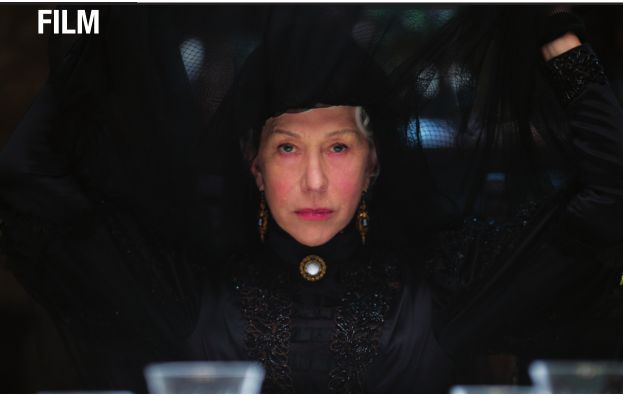
The story of Sarah Winchester and her family fortune is a fascinating one. Upon the death of her husband, William Wirt Winchester, she inherited $20 million (more than half a billion in 2018 dollars), controlled half of the stock in the famous firearms company, and was allotted a daily allowance of $1,000 per day. Having consulted a medium after the death of her infant daughter some years earlier, she repeated this course of action after her husband died and was told by a charlatan out of Boston that her family was cursed, haunted by the spirits of all of those killed by Winchester rifles. Taking this to heart in a foolish effort to appease the supposed ghosts, she moved to California, bought an eightroom farmhouse, and began having additions attached to the house, a project that continued, literally, around the clock, every day for more than 20 years. Winchester’s thinking was that if she provided refuge for the spirits, they would be put to rest in the rambling structure, one so large and confusing that servants were given maps so that they wouldn’t get lost.
All of this constitutes the “inspired by actual events” part of the Spierig Brothers’ haunted house thriller titled Winchester, an elaborately produced period piece that takes place at the turn of the century, quite some time after the proprietress’ residence had taken on its Rube Goldberg-like quality. The script from Tom Vaughan, rewritten by the Spierigs, uses the history of the house as a jumping-off point, putting Winchester (a game Helen Mirren) front and center as the subject of a psychological evaluation to be performed by Eric Price (Jason Clarke), a doctor with a less-than-stellar reputation. Seems the board of directors who runs the arms works thinks she might not be mentally able to run the company and wouldn’t mind wresting control from her if this can be proven.
It’s quite a setup, and rather a solid one as far as haunted house movies are concerned. And the fact that Price is a nonbeliever where the paranormal is concerned gives us a proper skeptic for the Spirits to convert. Yet the film is a mystery – the premise is solid, the acting is good, and the production design is constantly intriguing, what with the erratic nature of Winchester’s home – and somehow it never really engages us. The fact that it takes the movie a bit of time to get on its feet certainly doesn’t help, and neither does the fact that the Spierigs rely far too much on jump scares and little more to rattle the viewer. This isn’t nearly as clever as their previous features, Predestination or Daybreakers, both of which took established genres and turned them on their heads.
In films such as this, there needs to be a memorable set piece or two that will have audiences talking afterwards. No such moment occurs as the movie plods along from one mildly interesting revelation to the next, none of which adds up to anything unique or compelling. Mirren doesn’t phone it in, and Clarke continues to prove he’s one of our most criminally overlooked screen actors. Be that as it may, Winchester takes a fascinating story and turns it into a “meh” of a movie that fails to frighten, though it may spark enough interest for you to dig further into Sarah Winchester’s fascinating, tragic life.
For a review of The Cloverfield Paradox, go to the Cinemascoping blog at http://illinoistimes.com.